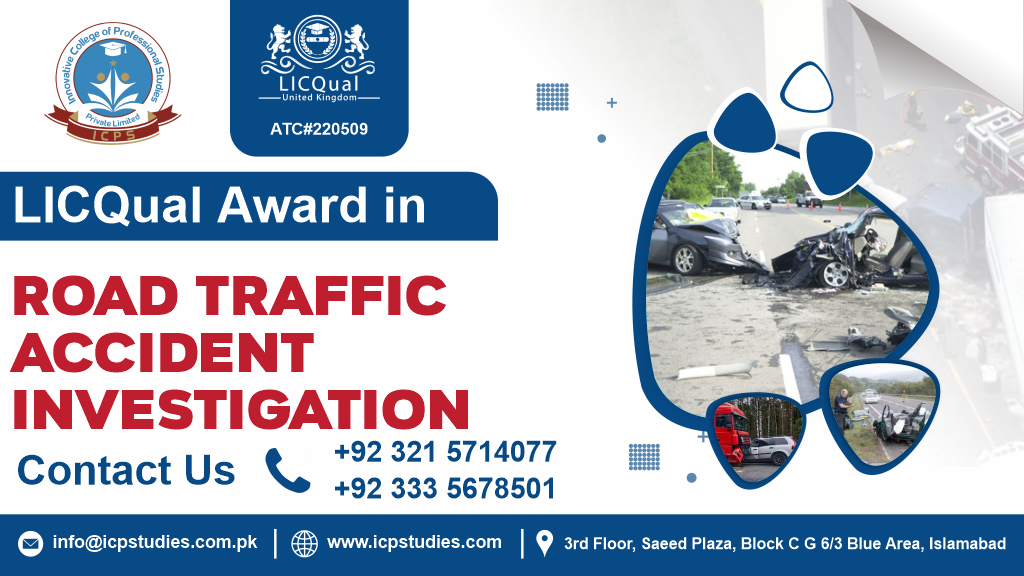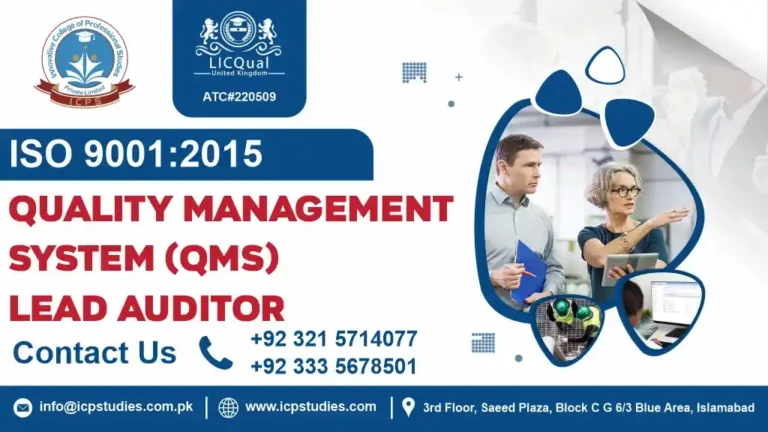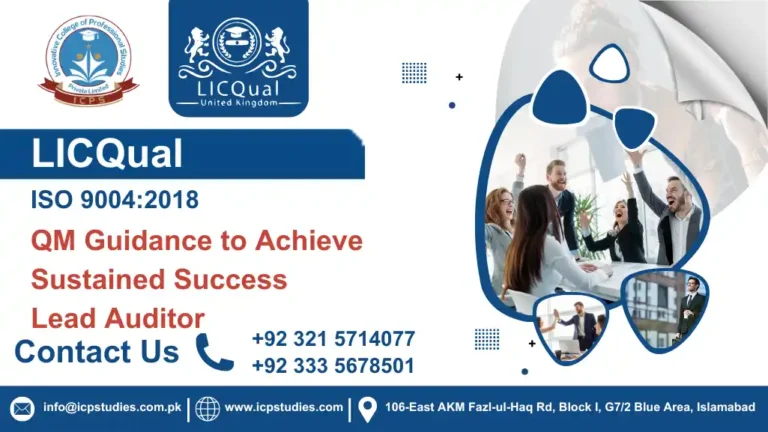Road traffic accident investigators are responsible for conducting thorough investigations into vehicle collisions and incidents. Their primary objective is to determine the sequence of events leading up to the accident, identify contributing factors such as human error, road conditions, vehicle defects, and environmental factors, and make recommendations to prevent similar accidents in the future. By applying scientific principles, forensic techniques, and specialized knowledge, these investigators provide critical insights that inform safety improvements and policy decisions.
Award in Road Traffic Accident Investigation offers numerous benefits for individuals passionate about promoting road safety and preventing accidents. From specialized training and enhanced career opportunities to practical skills development and professional recognition, this credential equips you with the tools and knowledge you need to succeed as a road traffic accident investigator. If you’re ready to embark on a rewarding career path that makes a positive impact on public safety, consider pursuing this valuable award and become a catalyst for change on our roads.
All About Award in Road Traffic Accident Investigation
Course Overview
The “Award in Road Traffic Accident Investigation” is a prestigious recognition bestowed upon individuals or organizations for their exceptional contributions to the field of road traffic accident investigation. This award acknowledges excellence in identifying the causes and contributing factors of road traffic accidents, conducting thorough investigations, and implementing measures to enhance road safety.
Award in Road Traffic Accident Investigation” serves as a symbol of excellence and a testament to the recipient’s dedication to enhancing road safety. It highlights the importance of effective accident investigation in preventing accidents, saving lives, and making roads safer for all road users.
Study Units
To enroll in the LICQual Award in Road Traffic Accident Investigation, candidates should meet the following entry requirements:
- Relevant Work Experience: A minimum of one year of experience in law enforcement, emergency services, or a related field is typically required.
- Educational Background: A high school diploma or equivalent is preferred; qualifications in criminal justice, safety, or a related discipline are beneficial.
- Basic Understanding of Road Traffic Laws: Familiarity with traffic regulations and accident investigation principles is essential.
- Age Requirement: Participants must be at least 18 years old.
- Language Proficiency: Proficiency in the language of instruction is necessary for effective comprehension of course materials.
- Commitment to Learning: A willingness to engage with the course content and apply knowledge of road traffic accident investigation.
These requirements ensure that candidates are adequately prepared to participate effectively in the course and gain essential skills in investigating road traffic accidents.
The LICQual Award in Road Traffic Accident Investigation course is designed for:
- Law Enforcement Officers: Police and traffic officers involved in investigating road traffic incidents.
- Accident Investigators: Professionals tasked with examining and analyzing traffic accidents for various agencies.
- Insurance Claims Adjusters: Individuals who need to understand accident dynamics to assess claims effectively.
- Emergency Responders: Paramedics and firefighters seeking to enhance their understanding of accident scenes.
- Legal Professionals: Lawyers and legal advisors involved in cases related to road traffic incidents.
- Traffic Safety Analysts: Those studying traffic patterns and safety measures to improve road safety.
This course is ideal for anyone looking to develop specialized skills in road traffic accident investigation, contribuing to safer road environments.
Learning Outcomes
This course on Fire Incident Investigation and Road Traffic Accident Investigation is designed for individuals who are interested in or actively involved in safety management, emergency response, accident investigation, law enforcement, transportation management, or related fields. It is particularly suited for:
- Firefighters and Emergency Responders:
- Individuals working in firefighting, emergency services, or disaster response roles who seek to enhance their understanding of fire incident investigation techniques and procedures.
- Law Enforcement Officers and Traffic Investigators:
- Personnel involved in law enforcement agencies, traffic management, or accident investigation units who wish to deepen their knowledge of road traffic accident investigation methodologies and legal frameworks.
- Safety and Risk Management Professionals:
- Professionals responsible for safety management, risk assessment, and compliance with regulatory standards in various industries, such as transportation, construction, manufacturing, and logistics, who aim to broaden their expertise in accident investigation.
- Accident Investigators and Inspectors:
- Individuals involved in accident investigation, inspection, or regulatory enforcement roles, including safety inspectors, accident analysts, forensic experts, and law enforcement officers, who are seeking specialized training in fire incident and road traffic accident investigation techniques.
- Transportation Professionals:
- Personnel employed in transportation-related industries, including trucking companies, public transit agencies, and logistics firms, who wish to enhance their understanding of accident causation factors, safety protocols, and accident prevention strategies.
- Health and Safety Practitioners:
- Health and safety professionals working in occupational health and safety, environmental protection, or risk management fields who seek to broaden their knowledge and skills in accident investigation and prevention.
- Government Officials and Policy Makers:
- Government officials, policymakers, and legislators involved in shaping regulations, policies, and standards related to fire safety, road traffic safety, or accident prevention, who seek to deepen their understanding of accident investigation principles and best practices.
- Students and Researchers:
- Undergraduate and graduate students studying fields related to fire science, forensic science, law enforcement, transportation engineering, safety management, or accident investigation, who are interested in gaining practical knowledge and skills in these areas.
- Professionals Seeking Career Advancement:
- Individuals looking to advance their careers in fields such as fire safety engineering, accident investigation, safety management, law enforcement, or transportation management, who recognize the value of specialized training and certification in accident investigation.
Overall, this course caters to a diverse audience with varied backgrounds and career aspirations, providing valuable knowledge, skills, and insights applicable to various industries and roles involved in ensuring safety and preventing accidents in both fire incidents and road traffic accidents.
FAQs about Award in Road Traffic Accident Investigation







